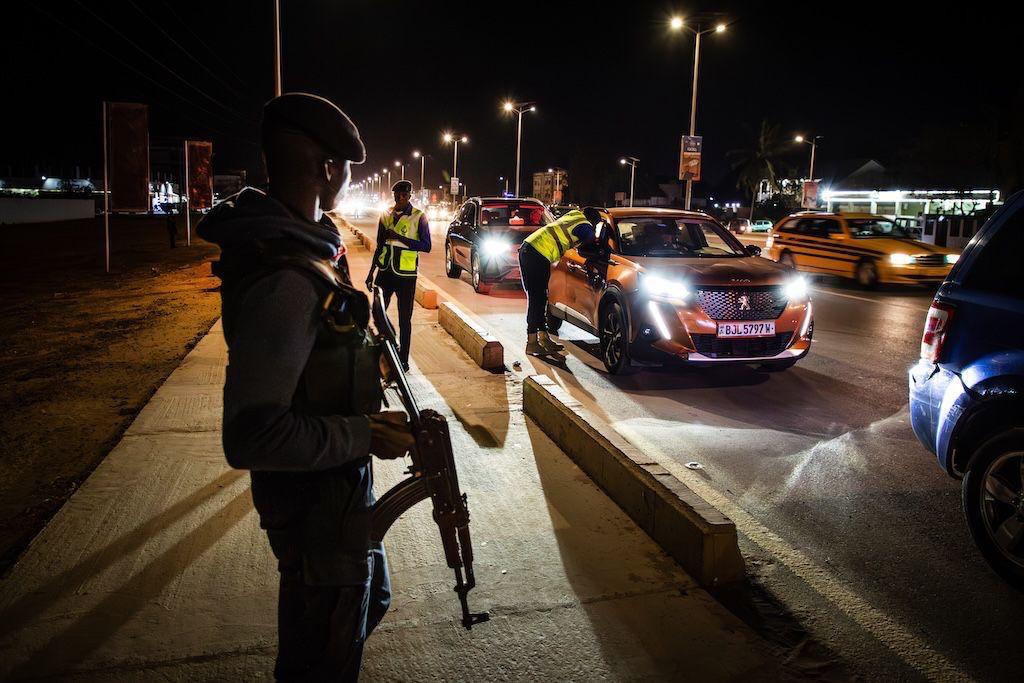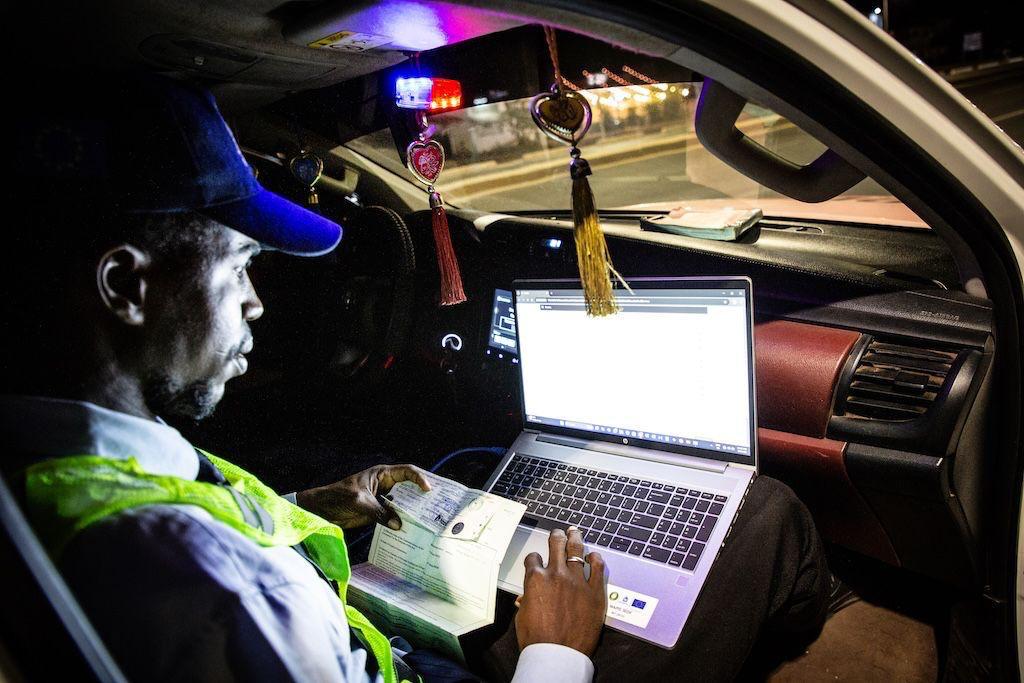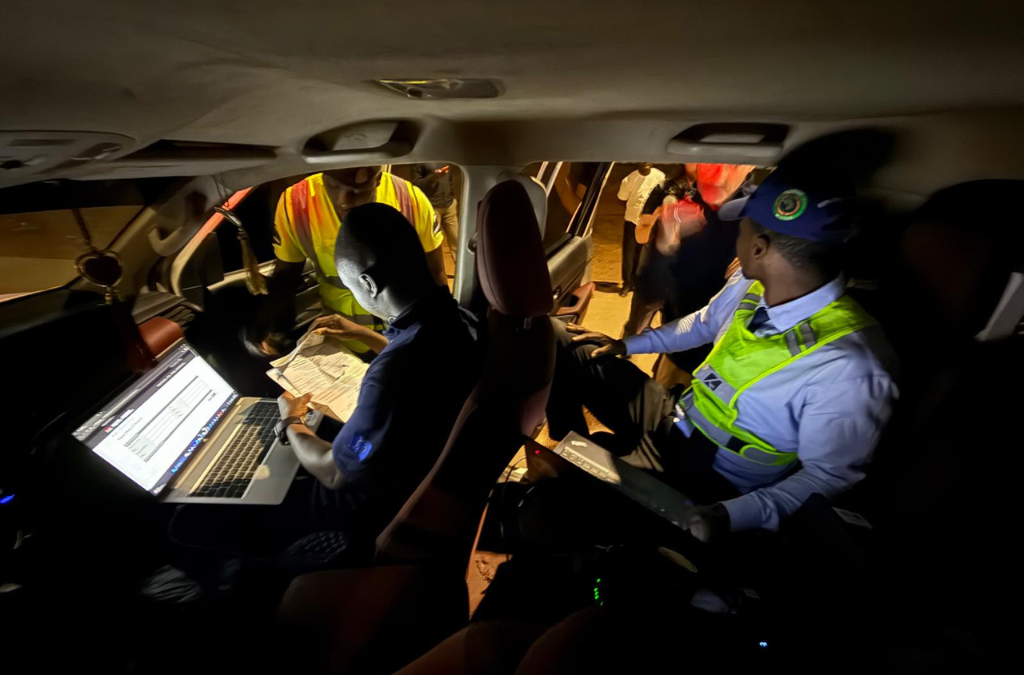Making vehicle theft a dead end for organized crime
When stolen vehicles are used to carry armed terrorists, bombs or drugs they become much more than a headache for their legal owner. Criminal Intelligence Officer Renato Schipani explains how INTERPOL’s Stolen Motor Vehicle unit is blocking the road for organized vehicle crime.

INTERPOL Spotlight: INTERPOL’S Stolen Motor Vehicle database contains almost eleven million records. What are the links between vehicle theft and organized crime?
Renato Schipani: Transnational criminal networks drive hundreds of thousands of vehicles into the global criminal underworld every year because they are a low-risk source of income and a low-cost tool for committing other types of crime. They traffic them across the world to sell or trade them and they use them to transport drugs, arms or other illegal cargo. Stolen vehicles have also frequently become a weapon in the hands of terrorists: in two of the highest profile attacks, stolen cars packed with bombs killed over 200 people when four commuter trains were blown up in Madrid in 2004 and the same method was used to assassinate Lebanese prime minister Rafic Hariri in 2005.
Criminals and armed groups also organize the theft of specific models to suit their purpose. Flat-bed pickup trucks are frequently used to mount heavy guns or carry armed fighters in conflict zones and luxury cars are often stolen to order, either to an individual purchaser’s specifications, to launder money or to trade for illegal goods like drugs or arms.

INTERPOL Spotlight: How does INTERPOL work to combat organized vehicle theft?
Renato Schipani: Our Stolen Motor Vehicle unit has become a global point of reference thanks to our unparalleled expertise in the field of vehicle theft. Today’s cars are really sophisticated computers on wheels, and we have the tools to analyze them to extract information on where they have been and when, or what phones or other devices have been connected.
We share the millions of records in our Stolen Motor Vehicles database our 196 member countries. It is the central starting point for identifying stolen vehicles and investigating both the thefts themselves and the criminal networks behind them. Detecting or recovering a car is just the beginning of the investigation: we aim to work with our member countries to identify the patterns and the criminal groups behind them.
That’s one of the key messages we transmit to member countries in our core Formatrain programme, which includes modules on vehicle examination, vehicle investigation, document identification and digital forensics. We keep law enforcement agencies, especially in key stolen vehicle destination and transit countries, up to date with the best practices, with training tailored to the criminal trends in each region, helping countries work together effectively across borders.

INTERPOL Spotlight: What concrete impact do you make in the field?
Renato Schipani: Globally, over a quarter of a million stolen vehicles were identified in our SMV database in 2024 – an average of more than 5,000 every week. We use those records to track and investigate individual cases, especially in the regions that we have identified as key vehicle trafficking routes: West Africa for North American and west European cars, East and southern Africa for British and Japanese cars, and the Middle East for luxury models.
We encourage all member countries to contribute to our database and, when they do, it can be a real gamechanger. In 2024, for example, we began partnering with Canada’s Public Safety department on Project Drive Out, aimed at increasing detection of stolen vehicles and spare parts worldwide and facilitating data sharing with vehicle manufacturers. Canada had been experiencing a sharp spike in vehicle thefts and from February 2024 began feeding information into the SMV database. Since then, we have been able to detect over 9,000 vehicles stolen in Canada. As part of the project, INTERPOL led Operation Safe Wheels in West Africa earlier this year, leading to the seizure of 75 vehicles, giving us crucial information, and the uncovering of two organized crime groups in just two weeks.
By fighting vehicle crime on these two fronts – detecting, intercepting and returning vehicles, and investigating links with organized crime – INTERPOL is sending a clear message to the networks driving this criminal trade: we are out there on the road and hot on their trail.



